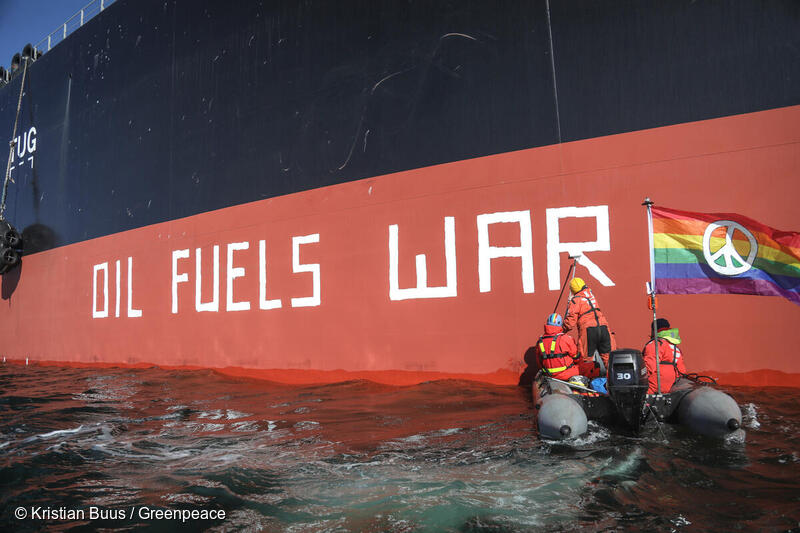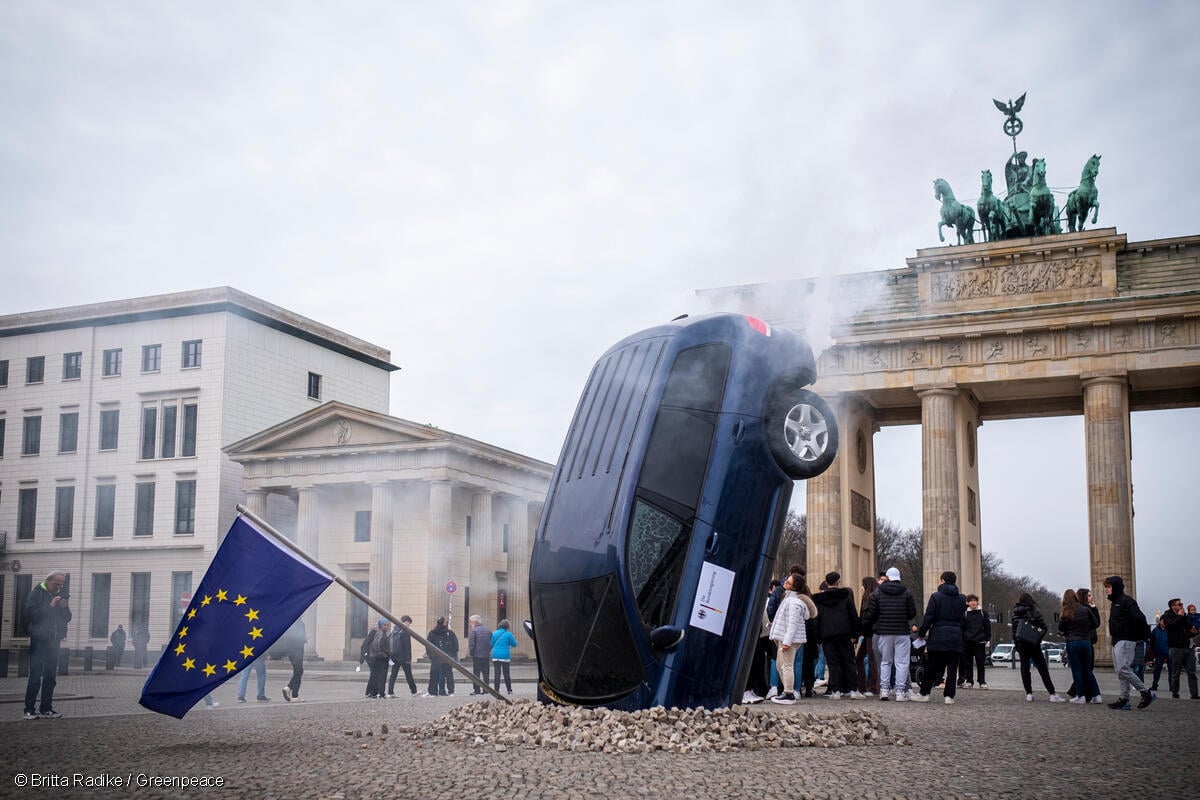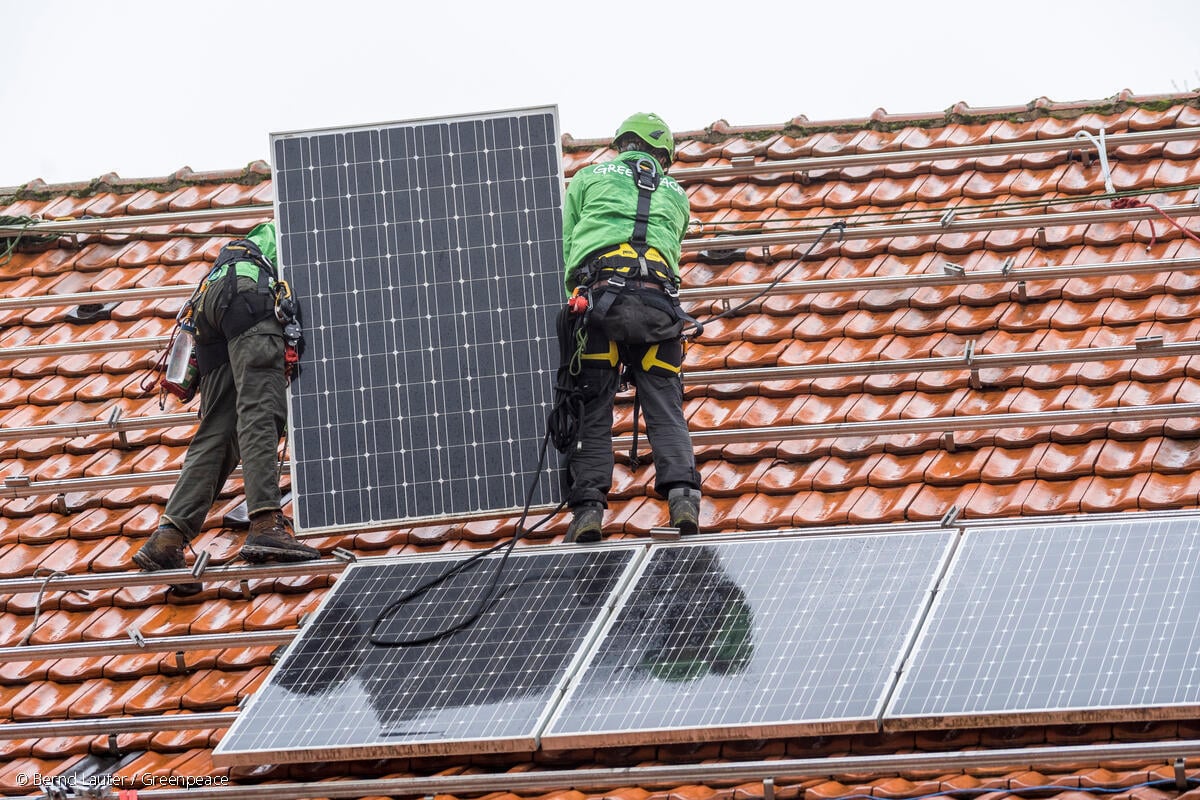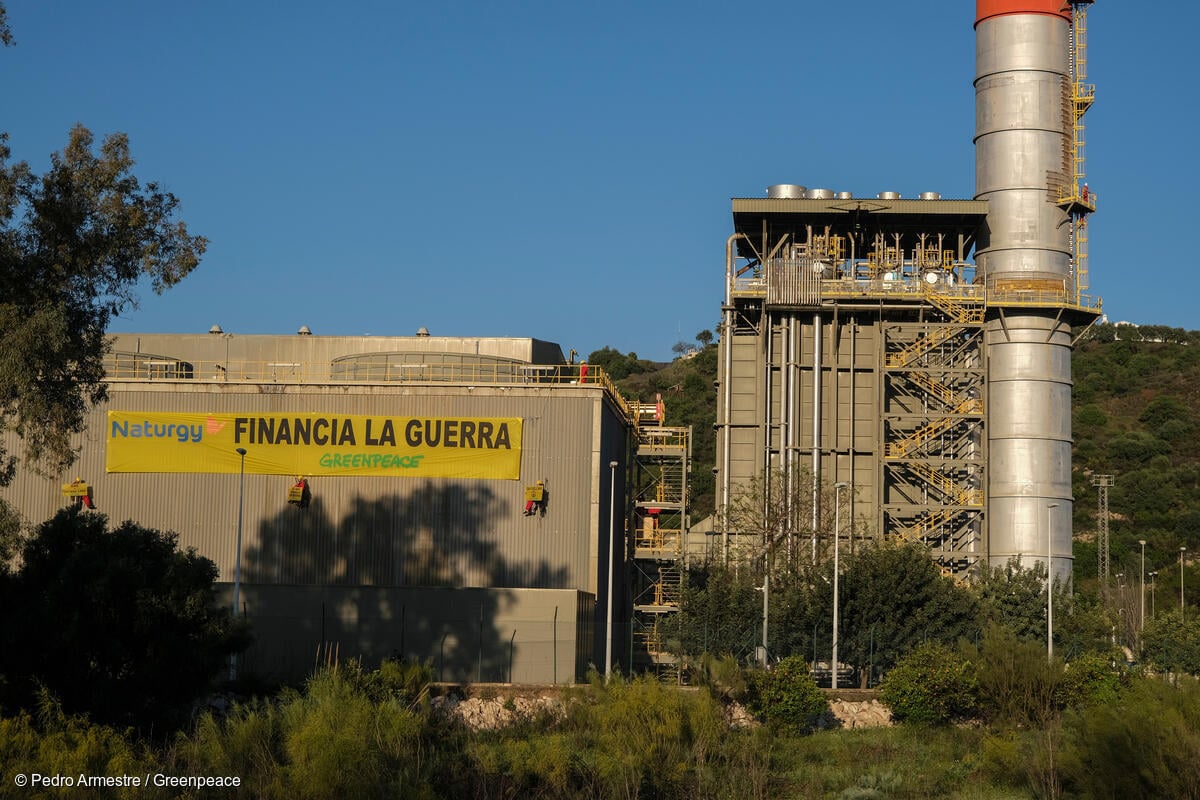Brussels – Greenpeace EU is calling on authorities in the EU to introduce emergency measures to cut the continent’s dependence on oil ahead of a ban on shipments of Russian oil kicking in on December 5. The campaign group is urging the European Commission and EU’s national governments to introduce mandatory measures to reduce Europe’s oil consumption, or risk locking countries into oil dependency, torpedoing climate targets, and escalating the energy and cost-of-living crises.

According to recent analysis by Greenpeace Central and Eastern Europe, short-term measures in the transport sector, such as a ban on private jets and short-haul flights with reasonable train alternatives, or the introduction of affordable ‘climate tickets’ for public transport, could cut the EU’s total oil use by 9%. It would also save EU consumers €63 billion on transport-related energy spending, and cut greenhouse gas emissions by the equivalent of the annual emissions of 120 million average cars.
Thomas Gelin, Greenpeace EU transport campaigner, said: “The EU’s ban on Russian oil is long overdue and a significant step towards supporting peace in Europe, but the answer to Europe’s oil addiction is not to find new suppliers. The EU and governments must cut oil consumption in vehicles and accelerate the transition to a clean transport system to unhook us from this polluting fuel for good. Governments would be irresponsible to not take the low-hanging fruit of banning needless short-haul flights and unfair private jets and making clean public transport cheaper.”
Transport consumes almost 70% of the oil used in the EU. Although the oil price has remained relatively stable in recent months, the market environment is anything but secure. Numerous factors threaten to push up oil prices again – oil demand for heating is surging, and more industries are switching from gas to oil for production or power generation, low reserves, OPEC cutting production, and the strikes at French refineries. Increasingly, oil traders are betting on prices of up to $200 per barrel in March 2023.
Northwest Europe’s stockpiles of road diesel, heating oil and other diesel-type fuels are already set to shrivel to their lowest level in 10 years this November. The situation could escalate further when the EU embargo on Russian refined fuels such as diesel, jet fuel and petrol comes into force on February 5, 2023. Europe is heavily reliant on refined oil supplies from Russia, such as agricultural and trucking fuel. EU countries still import 560,000 barrels of diesel from Russia every day. When the sanctions come into full force in December and February, an additional 1.1 million barrels of crude oil and 1 million barrels of diesel and other refined oil products per day from Russia will need to be replaced unless measures are taken to reduce consumption.
While the European Commission has acknowledged the significant energy savings potential in the transport sector, it has not proposed any EU-wide mandatory measures to save oil, whereas it has proposed measures to save gas and electricity. As EU transport ministers plan to meet in Brussels on 5 December, Greenpeace EU calls on them to seize this opportunity and put this topic on the agenda, starting with the aviation industry by banning private jets and useless short-haul flights that have train alternatives.
Contacts:
Thomas Gelin, Greenpeace EU transport campaigner: +32 473 57 04 46, [email protected]
Greenpeace EU press desk: +32 (0)2 274 1911, [email protected]
This press comment is also available on: www.greenpeace.eu
For breaking news and comment on EU affairs: www.twitter.com/GreenpeaceEU
Greenpeace is an independent global campaigning network that acts to change attitudes and behaviour, to protect and conserve the environment and to promote peace. We do not accept donations from governments, the EU, businesses or political parties. Greenpeace has over three million supporters, and 26 independent national and regional organisations with offices in more than 55 countries.
EU Transparency Register: 9832909575-41



